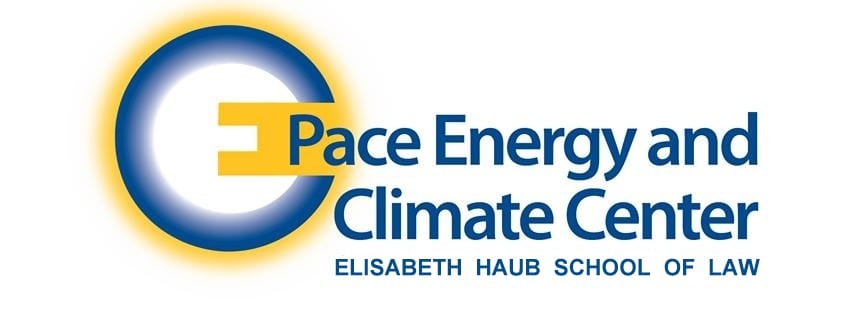THE ELISABETH HAUB SCHOOL OF LAW CELEBRATES 30 YEARS OF CLEAN ENERGY WORK
AT THE PACE ENERGY AND CLIMATE CENTER
WHITE PLAINS, NY – Pace University’s Elisabeth Haub School of Law today celebrated 30 years of work at the Pace Energy and Climate Center (PECC). For three decades, PECC has been at the leading edge of creating and implementing solutions to our energy and climate challenges on the local, state, regional, national, and international levels.
“Pace’s Energy and Climate Center is an important part of the Pace Law campus and our community,” said Dean Horace Anderson. “It is a force for legal and policy change, and has trained many Pace Law students to become the next generation of smart energy professionals, working at home and abroad to create more resilient, sustainable communities.”
“This little Center has had an outsized positive effect on clean energy policy over the past thirty years,” said Karl R. Rábago, current Center director. “We fight well above our weight because of the brilliant and inspired leadership of our founder, Dick Ottinger; because the high caliber of our staff, interns, and colleagues; and because of the steadfast support of our community, funders, and clients. I can’t wait to see what we do next!”
PECC was founded by Pace Law Dean Emeritus Richard Ottinger. In recognition of his decades of service to the Center, numerous elected officials issued proclamations and letters of support commending him for his service, including Congressman Eliot L. Engel, New York State Senator Andrea Stewart Cousins, New York State Assembly Members Amy R. Paulin, Steven Otis, and Thomas J. Abinanti, Westchester County Executive George Latimer, Chairman of the Westchester County Board of Legislators Benjamin Boykin, Westchester County Board of Legislator Catherine Parker, and Mayor of the City of White Plains Thomas Roach.
PECC is one of eight centers and institutes that are a part of the Pace Law campus. PECC is the leading Center working at the intersection of energy and the environment, engaging government decision makers and key stakeholders with robust research and analysis in law and policy. Over time, the Center has grown from its initial focus on energy regulatory law and policies to tackle transportation and fuels, as well as climate change mitigation and resilience. PECC directly engaged in complex regulatory proceedings in New York and several other states, and advocates successfully for policies to improve energy efficiency, advance renewable energy and distributed generation, account for environmental impacts in energy decisions, and reduce greenhouse gas emissions.
PECC is a critical part of Pace Law’s environmental law program, which is consistently ranked among the top in the country by “US News &World Report.” The Elisabeth Haub School of Law at Pace University launched its environmental law program in 1978; it has long been ranked among the world’s leading university programs. Pace’s doctoral graduates teach environmental law at universities around the world. Pace’s J.D. alumni are prominent in environmental law firms, agencies and non-profit organizations across the U.S. and abroad.
About Elisabeth Haub School of Law at Pace University
Pace University’s Elisabeth Haub School of Law (Pace Law) offers Juris Doctorate, Master of Laws, and Doctor of Juridical Science in Environmental Law degrees, as well as a series of joint degree programs. The school, housed on the University’s campus in White Plains, New York, opened its doors in 1976 and has over 8,500 alumni around the world. The school maintains a unique philosophy and approach to legal education that strikes an important balance between practice and theory. For more information visit http://law.pace.edu.
